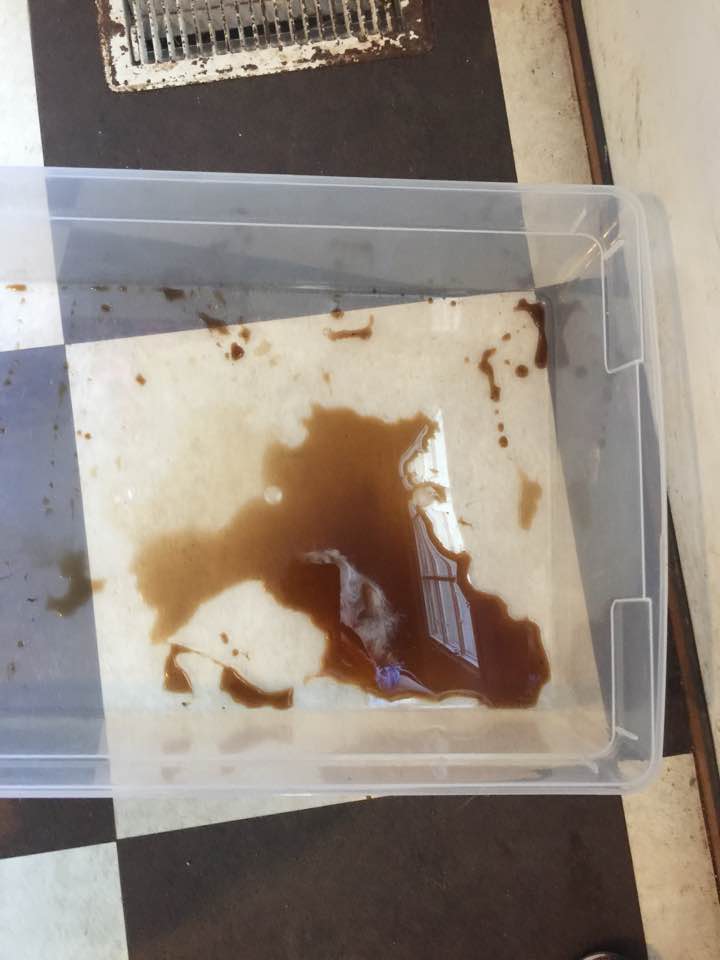Discolored Urine
Mini pigs usually have clear yellow urine of varying shades depending on hydration and foods consumed. On occasion, a pig parent is faced with a startling color in the urine. In most cases, this change of color is completely harmless, but it is always advised to seek veterinary advice if there are any questions or concerns.
Reasons for Color Changes in Urine
Dehydration is the leading cause of darkened and more concentrated urine. Mini pigs should always be rehydrated slowly to avoid the symptoms of salt toxicity. If your mini pig has a sudden change in color, offer lots of water and fruits or vegetables with high water content. Water mixed with fruit juice will encourage hydration.
Other causes for urine color changes are medical conditions, urinary infection, urinary stones, medications, acorns, and certain foods.
Urinary tract infections are common in mini pigs. If your mini pig is urinating frequently, straining to urinate, or urinating in inappropriate places, it’s best to visit your veterinarian to test a sample of urine.
Urinary stones are most common in males. In some cases, a stone can cause abrasions along the urinary tract resulting in blood in the urine called hematuria. It is fairly uncommon for there to be enough blood in the urine to be visible to the naked eye. More likely, in these cases, there is a very small amount of blood that can be viewed under the microscope at the veterinarian’s office.
Acorns are one of the most common causes for discolored urine, usually causing great concern with the pig parents that there is blood in the urine. It should be noted that acorns can potentially be harmful to your pig.
Dr. Cathy Zolicani tells us:
“Acorns are somewhat controversial in the pig world….first, they are very toxic to horses, mules, donkeys. So if you are planning on getting equines, don’t plant oaks. As far as pigs go…yes, acorns cause problems…in some pigs, acorns can cause kidney damage. In almost all pigs, ingestion will cause the urine to become red-orange. They cause all pigs to get fat. They can change gut motility and cause a blockage. So, if your pig has kidney issues, no acorns. If your pig has a weight problem, no acorns. If your pig gas digestive issues, no acorns. These affects tend to be accumulative…acorns over years will likely cause kidney issues in the future. As always, moderation is key….a few will not hurt. A steady diet of acorns is a bad idea.
I prefer to err on the side of caution….since they are a problem (toxic) to the kidneys of some pigs, avoid them. Remove the majority of acorns from the yard, but don’t worry about the few you miss.
There is also a weight/toxin relationship….large hogs can eat acorns bc it takes a bunch to reach a toxic level. The smaller the pig, the fewer acorns needed to be toxic. This is why large breed pigs can be used to clear acorns from fields before putting horses into those pastures.
An interesting side note: acorns are used to fatten pigs up in commercial swine operations….but young swine are butchered at about 7 months, so there is no worry about the long term affects of acorns on their kidneys.”
Some foods will also cause changes in the color or smell of urine. Beets, blackberries, rhubarb, asparagus, or carrots are some foods that are known culprits.
Visit our website to learn more about mini pigs, find a registered mini pig breeder, become a member of the AMPA and register your mini pig in the official mini pig registry!
www.AmericanMiniPigAssociation.com

